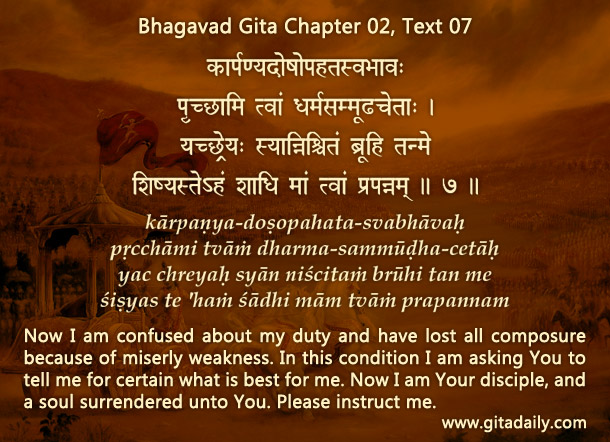To challenge the wisdom of God means to approach his words with a cold, critical attitude, with the intention of disproving, defying and denigrating it.
To let ourselves be challenged by the wisdom of God means to approach his words with an open, learning mood, with the intention of illumining, enriching and empowering ourselves with it.
The Bhagavad-gita delineates Arjuna’s journey from the first attitude to the second. At the Gita’s start, he develops cold feet towards his divinely-ordained duty as a warrior. Krishna reminds him his illustrious familial connection and glorious social vocation (02.02 – 02.03), thereby encouraging him to overcome his weak-mindedness.
But instead of seeing the wisdom in Krishna’s exhortation, Arjuna searches for errors in it, challenging its morality (02.06). Yet he soon recognizes that challenging Krishna is getting him nowhere except into greater confusion (02.06). Consequently, he wisely chooses the opposite course of action: he lets Krishna’s wisdom challenge him. Accepting that Krishna knows better than him what his best for him, he surrenders to him as a seeker to a seer (02.07).
Significantly, such submission doesn’t necessitate blind acceptance, as is evident in the many rational questions asked by Arjuna and the answers provided by Krishna throughout the Gita. Rather, the submission opens Arjuna’s head and heart to the profundity and potency of Krishna’s words, which resolve his specific moral dilemma by illumining universal questions of existence and purpose. By the end of the Gita (18.73), Arjuna becomes energized with a clear purpose that heralds the supreme victory (18.78).
Thus the Gita’s narrative demonstrates a timeless truth: challenging the words of God may inflate our ego, but it depresses our heart; whereas letting ourselves be challenged by those words may deflate our ego, but it animates our heart.
The choice is ours.


Leave A Comment